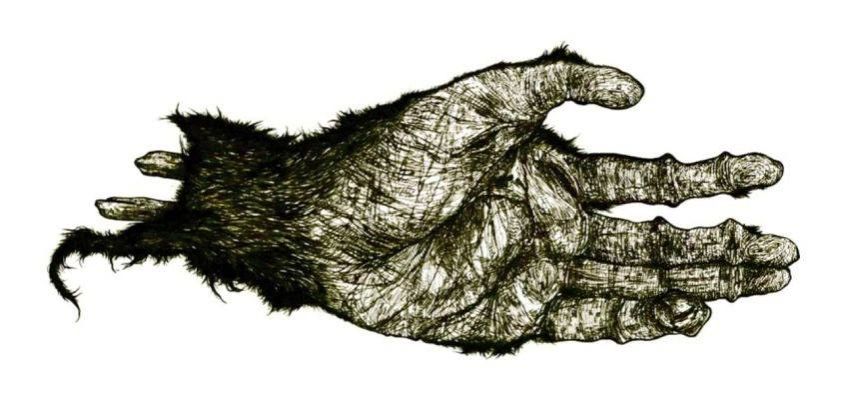 Today we are bringing you The Monkey’s Paw by W. W. Jacobs, one of the most famous horror stories of all time. First published in 1902, it has since appeared in many forms including live plays, movies, TV shows, radio plays, books, comics and cartoons (even a Simpsons episode!). In the story, a man makes a wish upon an enchanted monkey’s paw with disastrous results for his family. First, some advice before you start to read. Don’t do it sitting at home alone on a dark and stormy night! Themes: family, greed, tempting fate, industrialization (work safety), death, the supernatural. More…
Today we are bringing you The Monkey’s Paw by W. W. Jacobs, one of the most famous horror stories of all time. First published in 1902, it has since appeared in many forms including live plays, movies, TV shows, radio plays, books, comics and cartoons (even a Simpsons episode!). In the story, a man makes a wish upon an enchanted monkey’s paw with disastrous results for his family. First, some advice before you start to read. Don’t do it sitting at home alone on a dark and stormy night! Themes: family, greed, tempting fate, industrialization (work safety), death, the supernatural. More…
Category Archives: Short Stories
Inem
 This story by Pramoedya Ananta Toer is set in 1930s Java. A six-year-old boy’s best friend, an eight-year-old girl, is married off to a seventeen-year-old-man. The naïve girl, who has no idea what marriage entails, is excited only because of the new clothes and make-up she will wear at the ceremony. Her family are neighbors, and for months afterward the boy is kept awake by her screams at night. A year later she is divorced, a tainted “woman” facing a miserable future. Themes include cultural tradition, innocence, friendship, child marriage, brutality, patriarchy, shame, compassion vs. social correctness. More…
This story by Pramoedya Ananta Toer is set in 1930s Java. A six-year-old boy’s best friend, an eight-year-old girl, is married off to a seventeen-year-old-man. The naïve girl, who has no idea what marriage entails, is excited only because of the new clothes and make-up she will wear at the ceremony. Her family are neighbors, and for months afterward the boy is kept awake by her screams at night. A year later she is divorced, a tainted “woman” facing a miserable future. Themes include cultural tradition, innocence, friendship, child marriage, brutality, patriarchy, shame, compassion vs. social correctness. More…
The Undertaker / Coffin-Maker
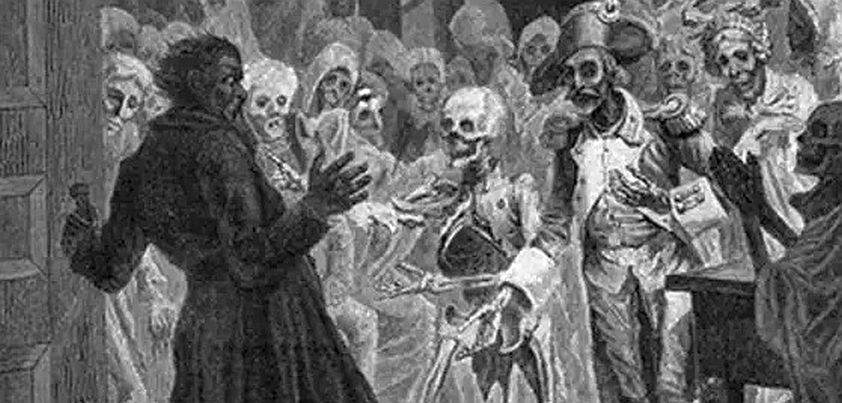 Many readers feel let down by this gloomy Alexander Pushkin story because of its seemingly abrupt ending. A Russian undertaker moves house to a more affluent Moscow suburb of predominantly German artisans. Invited to a neighbor’s party, he over-indulges in wine. After taking a proposed toast to his “corpses” as an insult to his profession, he threatens to have his own celebration the next day for those for whom I work: the orthodox dead. He wakes to find that his threat has become a reality. Or has it? Themes: life and death; racial, professional and religious prejudice; insecurity; unethical conduct/cheating. More…
Many readers feel let down by this gloomy Alexander Pushkin story because of its seemingly abrupt ending. A Russian undertaker moves house to a more affluent Moscow suburb of predominantly German artisans. Invited to a neighbor’s party, he over-indulges in wine. After taking a proposed toast to his “corpses” as an insult to his profession, he threatens to have his own celebration the next day for those for whom I work: the orthodox dead. He wakes to find that his threat has become a reality. Or has it? Themes: life and death; racial, professional and religious prejudice; insecurity; unethical conduct/cheating. More…
The Green Door
 This story by O. Henry provides a mix of adventure, mystery, romance and humor. By day, Rudolf Steiner lives a normal life working in a piano store. At night, he walks the streets looking for adventure. One night, adventure calls in an unusual way. A man standing outside a building hands him a card containing the words: The Green Door. Rudolf goes inside and knocks on the only green door he can find, leading to a series of events that could change his life. Themes include the nature of adventure (risk vs. rewards), chance vs. fate, romance. More…
This story by O. Henry provides a mix of adventure, mystery, romance and humor. By day, Rudolf Steiner lives a normal life working in a piano store. At night, he walks the streets looking for adventure. One night, adventure calls in an unusual way. A man standing outside a building hands him a card containing the words: The Green Door. Rudolf goes inside and knocks on the only green door he can find, leading to a series of events that could change his life. Themes include the nature of adventure (risk vs. rewards), chance vs. fate, romance. More…
Thongproi the Rich Girl
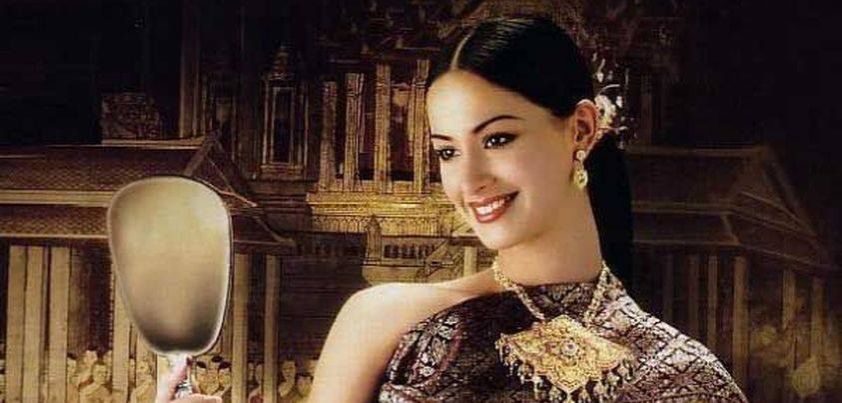 Have you ever wished you were so rich that you could have anything you want? There are two types of people in this group: those who work hard to capitalize on their good fortune, and those who live a life of indolent luxury. This story by Kukrit Pramoj is about a girl from Thailand who fits into the second category. Thongproi was spoiled from the day she was born, one of the most beautiful women in the district, and had a devoted husband in a senior government position. One would expect her to be very happy. But was she? More…
Have you ever wished you were so rich that you could have anything you want? There are two types of people in this group: those who work hard to capitalize on their good fortune, and those who live a life of indolent luxury. This story by Kukrit Pramoj is about a girl from Thailand who fits into the second category. Thongproi was spoiled from the day she was born, one of the most beautiful women in the district, and had a devoted husband in a senior government position. One would expect her to be very happy. But was she? More…
Extra
 This story by Yiyun Li highlights the helplessness of the working class in China’s race to modernity. A fifty-one-year-old spinster comes of age after being retrenched by a bankrupt garment factory. Her next two jobs involve “extras”, people who have been cast off by their family. First, as wife/carer to a dying old man; second, as a maid in a boarding school where she experiences love in a special friendship with a rejected six-year-old boy. In a fit of temper, the boy does something that sees her jobless again. . Themes include social change, compassion, abandonment, isolation, maternal love, survival. More…
This story by Yiyun Li highlights the helplessness of the working class in China’s race to modernity. A fifty-one-year-old spinster comes of age after being retrenched by a bankrupt garment factory. Her next two jobs involve “extras”, people who have been cast off by their family. First, as wife/carer to a dying old man; second, as a maid in a boarding school where she experiences love in a special friendship with a rejected six-year-old boy. In a fit of temper, the boy does something that sees her jobless again. . Themes include social change, compassion, abandonment, isolation, maternal love, survival. More…
A&P
 John Updike’s A&P reflects some common Middle American attitudes before the social upheavals of the 1960s. A supermarket employee (Sammy) resigns when three girls in swimsuits are rudely asked to leave the store. Themes include appearance, respect, sexuality, humiliation, class and choices. I don’t share the common interpretation that Sammy’s actions are heroic. The misogyny evident in his denigrating, sexist descriptions of the girls and cruel references to other customers suggest that he is not as righteous as he makes out. Would such a person really quit because of Lengel’s treatment of the girls, or could there be another reason? More…
John Updike’s A&P reflects some common Middle American attitudes before the social upheavals of the 1960s. A supermarket employee (Sammy) resigns when three girls in swimsuits are rudely asked to leave the store. Themes include appearance, respect, sexuality, humiliation, class and choices. I don’t share the common interpretation that Sammy’s actions are heroic. The misogyny evident in his denigrating, sexist descriptions of the girls and cruel references to other customers suggest that he is not as righteous as he makes out. Would such a person really quit because of Lengel’s treatment of the girls, or could there be another reason? More…
The Doll’s House / The Washerwoman’s Children
 Today we are featuring two stories from New Zealand: The Doll’s House by Katherine Mansfield and its sequel, The Washerwoman’s Children, written in celebration of Mansfield’s centenary by Maori writer Witi Ihimaera. In the first story, a family friend gives a magnificent doll’s house to the children of a well-to-do family. Their mother allows them to invite all but two of the girls at their school to come and see it. These girls (sisters) are shunned and teased by the other children because of their mother’s lowly job. Themes: imagination, class, prejudice, peer pressure, bullying, kindness. More…
Today we are featuring two stories from New Zealand: The Doll’s House by Katherine Mansfield and its sequel, The Washerwoman’s Children, written in celebration of Mansfield’s centenary by Maori writer Witi Ihimaera. In the first story, a family friend gives a magnificent doll’s house to the children of a well-to-do family. Their mother allows them to invite all but two of the girls at their school to come and see it. These girls (sisters) are shunned and teased by the other children because of their mother’s lowly job. Themes: imagination, class, prejudice, peer pressure, bullying, kindness. More…
New York Day Woman
 Major themes of this Edwidge Danticat story are mother-daughter relationships and cultural identity. Out of curiosity, an Americanised Haitian woman secretly follows her mother through the streets of central Manhattan after coming across her window shopping in expensive stores. The mother’s presence in Manhattan and confidence in navigating the crowded streets is a surprise, as is her destination. Over the course of the afternoon the girl begins to see her mother in a different light, with annoyance over her retaining many Haitian ways of life giving way to respect and admiration. Other themes include love, sacrifice, tradition, assimilation, understanding. More…
Major themes of this Edwidge Danticat story are mother-daughter relationships and cultural identity. Out of curiosity, an Americanised Haitian woman secretly follows her mother through the streets of central Manhattan after coming across her window shopping in expensive stores. The mother’s presence in Manhattan and confidence in navigating the crowded streets is a surprise, as is her destination. Over the course of the afternoon the girl begins to see her mother in a different light, with annoyance over her retaining many Haitian ways of life giving way to respect and admiration. Other themes include love, sacrifice, tradition, assimilation, understanding. More…
The Chosen Vessel
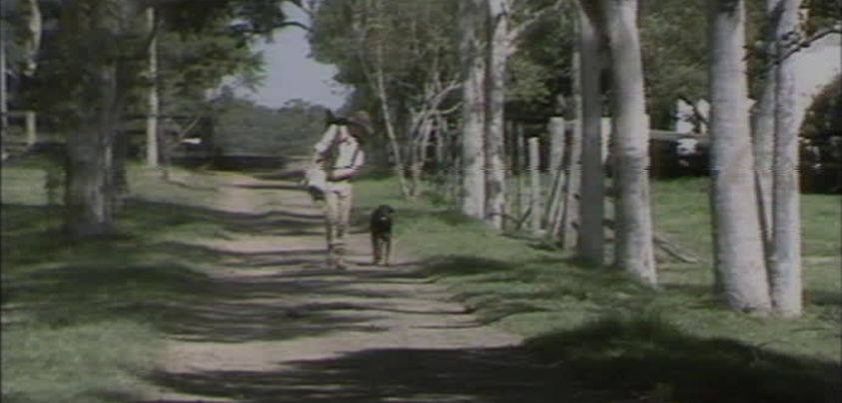 This story by Barbara Baynton paints a graphic picture of the isolation and dangers faced by women living in ‘outback’ Australia during the 19th century. A ‘swagman’ traveling the countryside looking for work visits a woman on a farm whose husband is away. She does not like the way he looks at her, and locks herself and her baby in their house. The man is about to break in when they hear a horse rider coming. The woman runs outside and calls for help. However, when the horse rider hears and then sees her, he races away in fright. More…
This story by Barbara Baynton paints a graphic picture of the isolation and dangers faced by women living in ‘outback’ Australia during the 19th century. A ‘swagman’ traveling the countryside looking for work visits a woman on a farm whose husband is away. She does not like the way he looks at her, and locks herself and her baby in their house. The man is about to break in when they hear a horse rider coming. The woman runs outside and calls for help. However, when the horse rider hears and then sees her, he races away in fright. More…
The Leap
 This Louise Erdrich story about the relationship between a former blindfold trapeze artist and her daughter involves three leaps. The first is the tragic failed leap that resulted in the deaths of the woman’s first husband and their unborn child. The second is the successful leap through which the mother saves the then seven-year-old girl from a house fire. The third is a leap of time. The now elderly mother is physically blind and requires her daughter’s help to engage her passion for books and reading. Themes: choice & consequences, mother-child relationships, love, courage, trust, aging, the joy of reading. More…
This Louise Erdrich story about the relationship between a former blindfold trapeze artist and her daughter involves three leaps. The first is the tragic failed leap that resulted in the deaths of the woman’s first husband and their unborn child. The second is the successful leap through which the mother saves the then seven-year-old girl from a house fire. The third is a leap of time. The now elderly mother is physically blind and requires her daughter’s help to engage her passion for books and reading. Themes: choice & consequences, mother-child relationships, love, courage, trust, aging, the joy of reading. More…
Harrison Bergeron
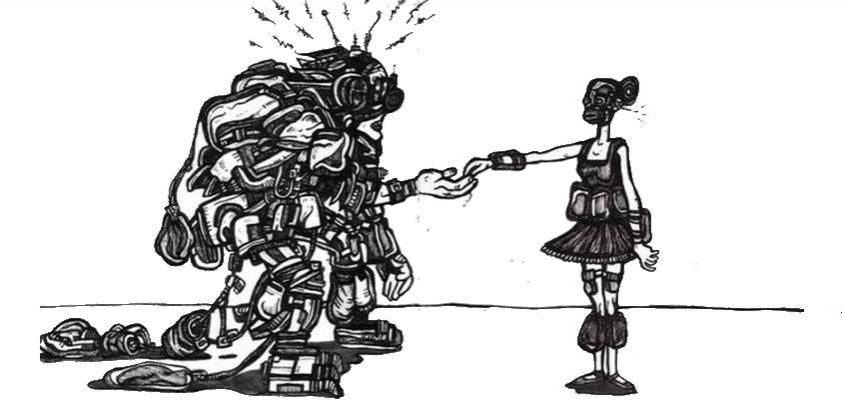 This story by science-fiction writer Kurt Vonnegut is about a future world in which the government tries to make everyone equal. The strong must carry heavy weights, the beautiful must wear masks, and the clever are subjected to distracting sounds to stop them thinking clearly. As is usual in totalitarian worlds, those in power are excused from all this… especially the Handicapper General and her “H-G” men. A powerful, gifted fourteen-year-old boy tries to change things as his parents watch on in confusion. Themes: control (forced conformity through oppression and violence), identity (equality vs. individuality), rebellion, media power. More…
This story by science-fiction writer Kurt Vonnegut is about a future world in which the government tries to make everyone equal. The strong must carry heavy weights, the beautiful must wear masks, and the clever are subjected to distracting sounds to stop them thinking clearly. As is usual in totalitarian worlds, those in power are excused from all this… especially the Handicapper General and her “H-G” men. A powerful, gifted fourteen-year-old boy tries to change things as his parents watch on in confusion. Themes: control (forced conformity through oppression and violence), identity (equality vs. individuality), rebellion, media power. More…
Shooting an Elephant
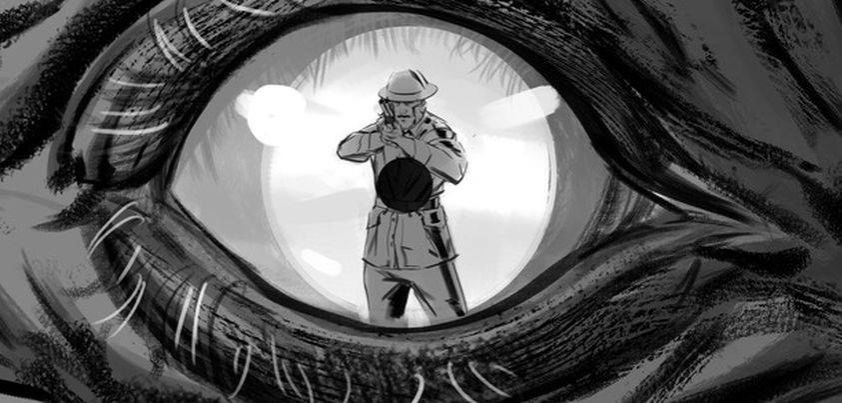 This story by Eric Arthur Blair (aka George Orwell) is a narrative essay in which the thesis is the wrongs of British Imperialism. A young officer in the British Colonial Police in the early 1920’s describes an experience with an elephant that had killed a villager. He tells how he felt pressured into shooting the animal, even though he knew this to be unnecessary. His fellow Europeans had mixed opinions but fortunately, none of them guessed the real reason for the shooting. Themes include culture clash, prejudice, the need to maintain authority, and moral conscience vs. pride/”face”. More…
This story by Eric Arthur Blair (aka George Orwell) is a narrative essay in which the thesis is the wrongs of British Imperialism. A young officer in the British Colonial Police in the early 1920’s describes an experience with an elephant that had killed a villager. He tells how he felt pressured into shooting the animal, even though he knew this to be unnecessary. His fellow Europeans had mixed opinions but fortunately, none of them guessed the real reason for the shooting. Themes include culture clash, prejudice, the need to maintain authority, and moral conscience vs. pride/”face”. More…
The Sparrows
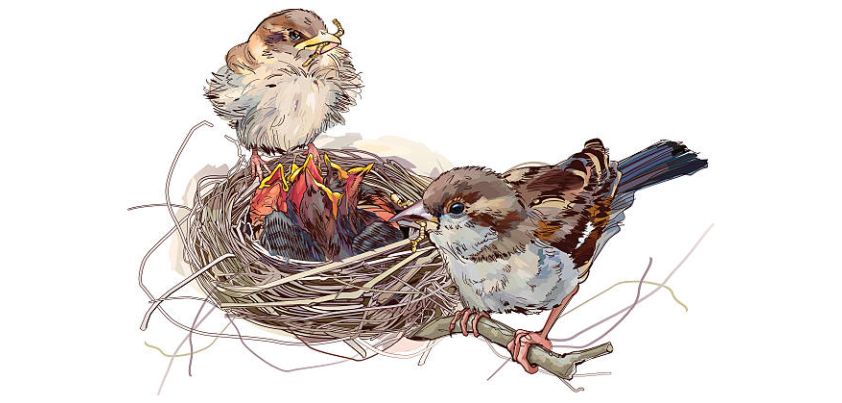 In this story by K. A. Abbas, an Indian man embittered by being forced to follow tradition and enter into a loveless marriage spends thirty years taking revenge on his family and society. He savagely beats his wife and sons, badly mistreats his farm animals, and is abusive to fellow villagers. As the story begins, his wife has left and he is alone in the world. In his misery, he finds solace and redemption through a family of sparrows nesting in the thatched roof of his hut. Themes include tradition, forbidden love, bitterness, revenge, cruelty, alienation and loneliness, connection, redemption. More…
In this story by K. A. Abbas, an Indian man embittered by being forced to follow tradition and enter into a loveless marriage spends thirty years taking revenge on his family and society. He savagely beats his wife and sons, badly mistreats his farm animals, and is abusive to fellow villagers. As the story begins, his wife has left and he is alone in the world. In his misery, he finds solace and redemption through a family of sparrows nesting in the thatched roof of his hut. Themes include tradition, forbidden love, bitterness, revenge, cruelty, alienation and loneliness, connection, redemption. More…
A January Night / Poos Ki Raat
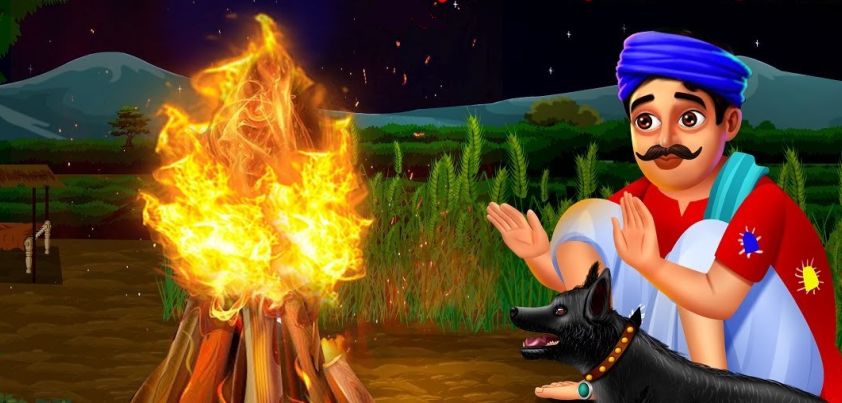 This story by Premchand highlights the plight of tenant farmers in pre-Independence India. In the Hindu calendar, the month of Poos (mid-December to mid-January) marks the beginning of winter. A farmer, forced to pay his debts with money he had saved to buy a blanket, watches over his crops one night in freezing temperatures. With his loyal dog beside him, he manages to survive the night. Unfortunately, his crops do not. His wife is devastated, but he is happy. Themes include the powerlessness and exploitation of tenant farmers, poverty, struggle, the harshness of nature, resilience. More…
This story by Premchand highlights the plight of tenant farmers in pre-Independence India. In the Hindu calendar, the month of Poos (mid-December to mid-January) marks the beginning of winter. A farmer, forced to pay his debts with money he had saved to buy a blanket, watches over his crops one night in freezing temperatures. With his loyal dog beside him, he manages to survive the night. Unfortunately, his crops do not. His wife is devastated, but he is happy. Themes include the powerlessness and exploitation of tenant farmers, poverty, struggle, the harshness of nature, resilience. More…
Greatness Strikes Where It Pleases
 This touching story by Lars Gustafsson explores the life of a severely retarded man who was institutionalized from age seven. Although it mentions the obvious issues of social isolation, loneliness, and ill-treatment, these are not the focus of the story. Rather, it is a celebration of how, cut off from society and without love or human companionship, he uses childhood memories to connect to the world through an imaginary private universe in which, as the creator, he holds a place of greatness. Themes include social isolation and loneliness, powerlessness, the importance of language, memories, imagination, connection. More…
This touching story by Lars Gustafsson explores the life of a severely retarded man who was institutionalized from age seven. Although it mentions the obvious issues of social isolation, loneliness, and ill-treatment, these are not the focus of the story. Rather, it is a celebration of how, cut off from society and without love or human companionship, he uses childhood memories to connect to the world through an imaginary private universe in which, as the creator, he holds a place of greatness. Themes include social isolation and loneliness, powerlessness, the importance of language, memories, imagination, connection. More…
The Wife’s Story
 In addition to its themes of love, trust, family and perception, this Ursula Le Guin story carries two important messages. The first is that we are often so blinded by our love for someone that we fail to notice subtle hints that may indicate flaws or emerging problems in their character. The second is that there are always two sides to every interaction between sentient beings. To many humans, wolves are wild, dangerous predators to be shot on sight. To wolves, man is a feared aggressor who all too often attacks and kills them for living as nature intended. More…
In addition to its themes of love, trust, family and perception, this Ursula Le Guin story carries two important messages. The first is that we are often so blinded by our love for someone that we fail to notice subtle hints that may indicate flaws or emerging problems in their character. The second is that there are always two sides to every interaction between sentient beings. To many humans, wolves are wild, dangerous predators to be shot on sight. To wolves, man is a feared aggressor who all too often attacks and kills them for living as nature intended. More…
Footnote to Youth
 This story by José García Villa provides a stark warning about the consequences of marrying too young. A seventeen-year-old Filipino boy from a poor farming family insists on marrying his girlfriend. Whatever his reason (love, tradition, desire for independence), neither is happy in the marriage. Amid the daily grind of farm life and the responsibilities of raising a family, both experience disillusionment and regret. Sadly, the cycle begins again when their oldest son turns eighteen. Themes include immaturity, impulsiveness, the romance vs. reality of marriage, lack of fulfilment, disillusionment, regret, the cyclical nature of life. More…
This story by José García Villa provides a stark warning about the consequences of marrying too young. A seventeen-year-old Filipino boy from a poor farming family insists on marrying his girlfriend. Whatever his reason (love, tradition, desire for independence), neither is happy in the marriage. Amid the daily grind of farm life and the responsibilities of raising a family, both experience disillusionment and regret. Sadly, the cycle begins again when their oldest son turns eighteen. Themes include immaturity, impulsiveness, the romance vs. reality of marriage, lack of fulfilment, disillusionment, regret, the cyclical nature of life. More…
Yellow Moepels
 In this story by Herman Bosman, a young a young farmer riding off to fight the British during the short First Boer War promises the girl he is engaged to that he will be home when the moepel fruit are ripe (yellow). The girl visits a native witch-doctor who tells her the same thing. We learned earlier in the story that witch-doctors can only tell you the things that don’t matter in your life. There is something more important in the girl’s future that the witch-doctor neglected to divulge. Themes: love, superstition, war, “bravery”, memory, racism. More…
In this story by Herman Bosman, a young a young farmer riding off to fight the British during the short First Boer War promises the girl he is engaged to that he will be home when the moepel fruit are ripe (yellow). The girl visits a native witch-doctor who tells her the same thing. We learned earlier in the story that witch-doctors can only tell you the things that don’t matter in your life. There is something more important in the girl’s future that the witch-doctor neglected to divulge. Themes: love, superstition, war, “bravery”, memory, racism. More…
Islands
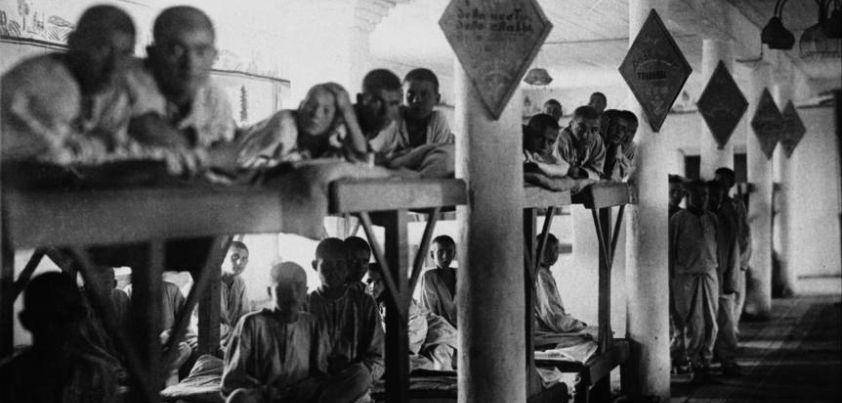 Set in the 1970s before the breakup of Yugoslavia, this semi-autobiographical story by Alexsander Hemon describes a Bosnian family’s holiday visit to relatives on a Croatian island. The narrator is a nine-year-old boy indoctrinated in communist ideology. He experiences several traumatic events over the week, the most notable of which is his uncle’s account of the brutal mistreatment and torture of children in Stalin’s prison camps. This shatters his view of the world, and challenges his belief in his own government (the Tito regime). Themes include memory, trauma, loss of innocence, self-awareness and identity, disillusionment, birth, death and futility. More…
Set in the 1970s before the breakup of Yugoslavia, this semi-autobiographical story by Alexsander Hemon describes a Bosnian family’s holiday visit to relatives on a Croatian island. The narrator is a nine-year-old boy indoctrinated in communist ideology. He experiences several traumatic events over the week, the most notable of which is his uncle’s account of the brutal mistreatment and torture of children in Stalin’s prison camps. This shatters his view of the world, and challenges his belief in his own government (the Tito regime). Themes include memory, trauma, loss of innocence, self-awareness and identity, disillusionment, birth, death and futility. More…
Where Have You Gone, Charming Billy?
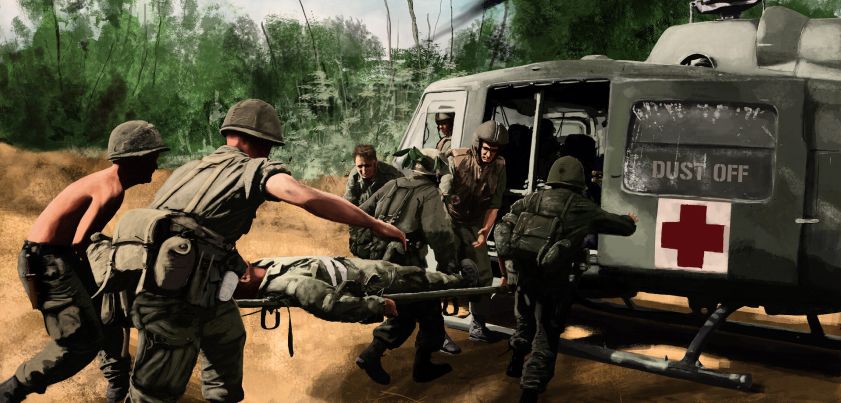 Private First Class Paul Berlin faces three antagonists in this story by Vietnam veteran Tim O’Brien: the enemy (it is after all a war story!), his fellow soldiers (he will be punished and/or branded as a coward if he fails in his duty), and himself (the ability to control his fear). Although the major theme is clearly fear, the story also highlights the naivety and youthful innocence of many of those sent to fight in the war. Fear is presented as two-dimensional. While giving in to it can have grave consequences, facing and harnessing it can save a soldier’s life. More…
Private First Class Paul Berlin faces three antagonists in this story by Vietnam veteran Tim O’Brien: the enemy (it is after all a war story!), his fellow soldiers (he will be punished and/or branded as a coward if he fails in his duty), and himself (the ability to control his fear). Although the major theme is clearly fear, the story also highlights the naivety and youthful innocence of many of those sent to fight in the war. Fear is presented as two-dimensional. While giving in to it can have grave consequences, facing and harnessing it can save a soldier’s life. More…
Notes to My Biographer
 The narrator of this dark comedy by Adam Haslett is a mentally ill seventy-three-year-old. The proud, delusional man won’t acknowledge the problem, refuses to take his medication, and is in severe financial difficulty. After a road trip to visit his son Graham, the only family member who will see him, he comes up with an idea for a revolutionary new bicycle that will make both of them rich. Graham, who is secretly battling the same illness as his father, is left shattered by the visit. Themes include mental illness, pride, estrangement, loneliness, obsession, paranoia, sexuality, embarrassment, fear. More…
The narrator of this dark comedy by Adam Haslett is a mentally ill seventy-three-year-old. The proud, delusional man won’t acknowledge the problem, refuses to take his medication, and is in severe financial difficulty. After a road trip to visit his son Graham, the only family member who will see him, he comes up with an idea for a revolutionary new bicycle that will make both of them rich. Graham, who is secretly battling the same illness as his father, is left shattered by the visit. Themes include mental illness, pride, estrangement, loneliness, obsession, paranoia, sexuality, embarrassment, fear. More…
The Destructors
 This acclaimed but rather disturbing story from Graham Greene is set in the aftermath of World War 2. A group of boys known as the Wormsley Common Gang meet daily to plan acts of mischief around London. A new member successfully challenges the leader and, in suggesting the destruction of an old man’s stately two-hundred-year-old house, elevates their mischief from harmless fun to wanton vandalism and cruelty. The major theme of the story is class (rebellion against the pre-war materialistic social order, as symbolized by the house). Other themes: innocence, the quest for and misuse of power, cruelty. More…
This acclaimed but rather disturbing story from Graham Greene is set in the aftermath of World War 2. A group of boys known as the Wormsley Common Gang meet daily to plan acts of mischief around London. A new member successfully challenges the leader and, in suggesting the destruction of an old man’s stately two-hundred-year-old house, elevates their mischief from harmless fun to wanton vandalism and cruelty. The major theme of the story is class (rebellion against the pre-war materialistic social order, as symbolized by the house). Other themes: innocence, the quest for and misuse of power, cruelty. More…
The Management of Grief
 This story by Bharati Mukherjee is a fictional account of how families of Canadian-Indian passengers coped (or in some cases couldn’t cope) in the aftermath of the 1985 bombing of Air India Flight 182. Told through the eyes of a woman who lost her husband and two sons, the story contrasts the Canadian government’s insensitive, “textbook” approach to grief management with the protagonist’s conviction that we must all grieve in our own way according to our cultural traditions and personal preferences. Themes: denial (hope) vs. acceptance, despair, cultural tradition, bureaucracy, collective vs individual identity, collective blame. More…
This story by Bharati Mukherjee is a fictional account of how families of Canadian-Indian passengers coped (or in some cases couldn’t cope) in the aftermath of the 1985 bombing of Air India Flight 182. Told through the eyes of a woman who lost her husband and two sons, the story contrasts the Canadian government’s insensitive, “textbook” approach to grief management with the protagonist’s conviction that we must all grieve in our own way according to our cultural traditions and personal preferences. Themes: denial (hope) vs. acceptance, despair, cultural tradition, bureaucracy, collective vs individual identity, collective blame. More…
Pillar of Salt
 In this story by Shirley Jackson, a New Hampshire couple’s idyllic holiday in New York goes awry when the woman panics after falsely thinking a building they were in was on fire. She sees the once bright, exciting city differently, losing confidence among the crowds and imagining decay everywhere. When the couple discover a body part on a Long Island beach, she spins out of control. The next day, alone on a crowded sidewalk, she is too scared to even cross the street. Themes include loss of identity (powerlessness and invisibility among the crowds), anxiety, paranoia, fear. More…
In this story by Shirley Jackson, a New Hampshire couple’s idyllic holiday in New York goes awry when the woman panics after falsely thinking a building they were in was on fire. She sees the once bright, exciting city differently, losing confidence among the crowds and imagining decay everywhere. When the couple discover a body part on a Long Island beach, she spins out of control. The next day, alone on a crowded sidewalk, she is too scared to even cross the street. Themes include loss of identity (powerlessness and invisibility among the crowds), anxiety, paranoia, fear. More…
The Devil
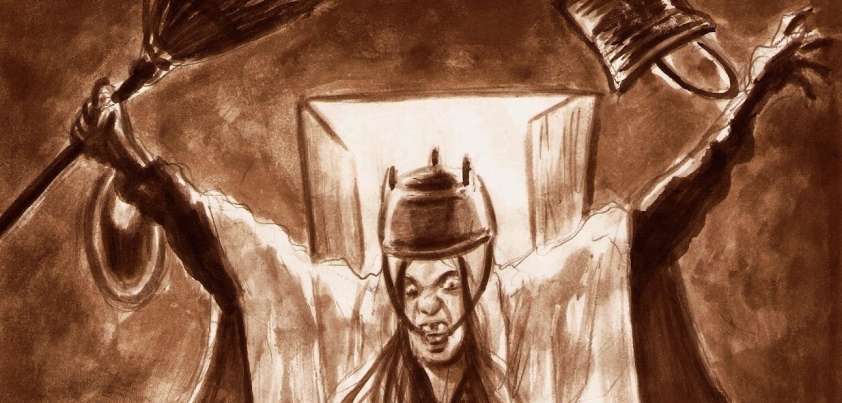 In The Devil, Guy de Maupassant adopts the unusual (for him) approach of lightening a dark story-line with some playful dialog. A heartless old washerwoman has a side job nursing fellow villagers as they approach death. She normally charges by the day, but when forced into agreeing to a flat fee she has a ‘devilish’ way of helping her patients move along sooner rather than later. The major theme is greed, as evidenced by the lengths she and other villagers will go to if they can save a penny (or in this case, a sou). Other themes: death, poverty, deceit. More…
In The Devil, Guy de Maupassant adopts the unusual (for him) approach of lightening a dark story-line with some playful dialog. A heartless old washerwoman has a side job nursing fellow villagers as they approach death. She normally charges by the day, but when forced into agreeing to a flat fee she has a ‘devilish’ way of helping her patients move along sooner rather than later. The major theme is greed, as evidenced by the lengths she and other villagers will go to if they can save a penny (or in this case, a sou). Other themes: death, poverty, deceit. More…
The Verger
 This story by W Somerset Maugham is about man named Albert who has worked hard as a church official for 16 years. When a new vicar learns Albert cannot read or write, he tells him that he must leave the job. Rather than go home immediately, Albert walks the streets trying to think of what he can do. During the walk, he decides to open a business. He soon proves that you don’t need a good education to be a success. All you need is the ability to think creatively, and the courage to back your ideas. More…
This story by W Somerset Maugham is about man named Albert who has worked hard as a church official for 16 years. When a new vicar learns Albert cannot read or write, he tells him that he must leave the job. Rather than go home immediately, Albert walks the streets trying to think of what he can do. During the walk, he decides to open a business. He soon proves that you don’t need a good education to be a success. All you need is the ability to think creatively, and the courage to back your ideas. More…
The Babus of Nayanjore
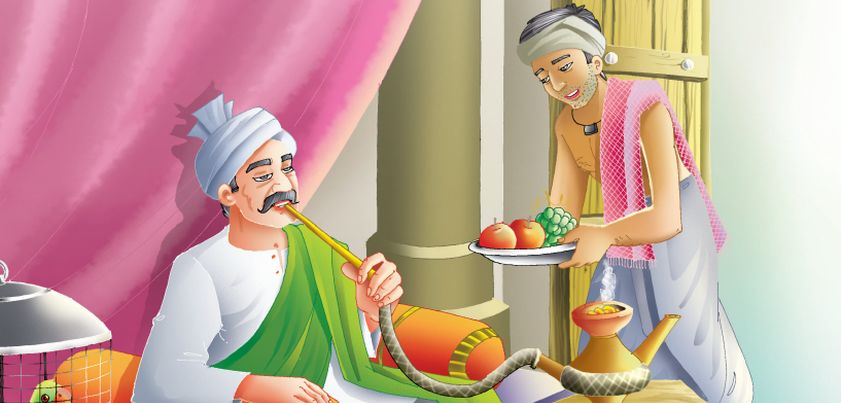 Major themes of this Rabindranath Tagore story are class, identity and hubris. Despite living in poverty, the last male descendent of a once wealthy Indian noble family maintains his aristocratic bearing. Most in the community humor the old man, treating him with kindness and respect. However his neighbor, the well-educated, excessively proud son of a working class man who became rich through hard work, looks down on him. The neighbor plays a cruel trick that backfires, finding himself part of the old man’s family and greatly boosting his self-esteem. Other themes include tradition, social change, extravagance vs. frugality, dignity, respect. More…
Major themes of this Rabindranath Tagore story are class, identity and hubris. Despite living in poverty, the last male descendent of a once wealthy Indian noble family maintains his aristocratic bearing. Most in the community humor the old man, treating him with kindness and respect. However his neighbor, the well-educated, excessively proud son of a working class man who became rich through hard work, looks down on him. The neighbor plays a cruel trick that backfires, finding himself part of the old man’s family and greatly boosting his self-esteem. Other themes include tradition, social change, extravagance vs. frugality, dignity, respect. More…
The Train from Rhodesia
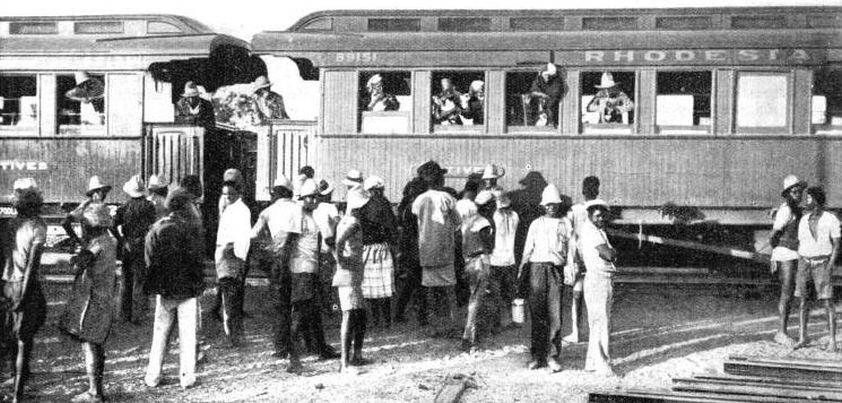 In this Nadine Gordimer story, poverty-stricken villagers hawking food and local crafts swarm an African passenger train during its short stop at an isolated station. A young passenger admires a beautifully carved lion offered by a frail old man, but rejects it as being too expensive. She becomes upset when her husband later presents it to her, proudly announcing that he paid less than half the asking price. Although clearly outraged by his pleasure in humiliating the old man, her anger may imply other problems in their relationship. Themes: racial inequality, wealth and poverty, greed, exploitation, shame, identity and independence. More…
In this Nadine Gordimer story, poverty-stricken villagers hawking food and local crafts swarm an African passenger train during its short stop at an isolated station. A young passenger admires a beautifully carved lion offered by a frail old man, but rejects it as being too expensive. She becomes upset when her husband later presents it to her, proudly announcing that he paid less than half the asking price. Although clearly outraged by his pleasure in humiliating the old man, her anger may imply other problems in their relationship. Themes: racial inequality, wealth and poverty, greed, exploitation, shame, identity and independence. More…
Luba
 This story by Lily Brett is as much a description of how a group of holocaust survivors settled into Australian life as it is a tale of a marriage gone sour. One of the couples is understandably obsessive about security and the welfare of their only daughter. Against their wishes, the girl marries outside their faith and, despite five years of psychotherapy, carries some of their concerns and obsessions into her marriage. A passionate affair with an artist friend of her husband’s opens up a new, more carefree life. Themes include assimilation, friendship, family, intermarriage/racism, obsession, infidelity, love. More…
This story by Lily Brett is as much a description of how a group of holocaust survivors settled into Australian life as it is a tale of a marriage gone sour. One of the couples is understandably obsessive about security and the welfare of their only daughter. Against their wishes, the girl marries outside their faith and, despite five years of psychotherapy, carries some of their concerns and obsessions into her marriage. A passionate affair with an artist friend of her husband’s opens up a new, more carefree life. Themes include assimilation, friendship, family, intermarriage/racism, obsession, infidelity, love. More…
Bible
 Tobias Wolff’s Bible starts with schoolteacher Maureen facing one of a woman’s worst fears. A man comes up behind her in a parking lot, demands her keys, and forces her into her car. Superficially, the story is about justice. The man’s son is about to be expelled from her school for cheating. On a deeper level, it is an account of the failed relationships in Maureen’s life. The man wants Maureen to swear on a white bible he got from Goodwill. White is a symbol of innocence and purity; throwing it in a goodwill bin suggests casting off these values. More…
Tobias Wolff’s Bible starts with schoolteacher Maureen facing one of a woman’s worst fears. A man comes up behind her in a parking lot, demands her keys, and forces her into her car. Superficially, the story is about justice. The man’s son is about to be expelled from her school for cheating. On a deeper level, it is an account of the failed relationships in Maureen’s life. The man wants Maureen to swear on a white bible he got from Goodwill. White is a symbol of innocence and purity; throwing it in a goodwill bin suggests casting off these values. More…
Love in the Cornhusks
 On the surface, this story from Aida Rivera-Ford is about young love leading to an illegitimate child, a “disappearing” boyfriend, an unhappy marriage of convenience, affirmation of the boyfriend’s love, and taking responsibility for one’s actions. On a deeper level, questions arise as to whether the couple’s lovemaking was consensual or forced (She resisted but his arms were strong.). We also see elements of ethnic and class discrimination in the descriptions of Tinang’s Bagobo husband and her sense of superiority over the “darker-skinned” girls and other workers in the fields. Themes: prejudice, love, choices and consequences, regret, facing reality/moving on. More…
On the surface, this story from Aida Rivera-Ford is about young love leading to an illegitimate child, a “disappearing” boyfriend, an unhappy marriage of convenience, affirmation of the boyfriend’s love, and taking responsibility for one’s actions. On a deeper level, questions arise as to whether the couple’s lovemaking was consensual or forced (She resisted but his arms were strong.). We also see elements of ethnic and class discrimination in the descriptions of Tinang’s Bagobo husband and her sense of superiority over the “darker-skinned” girls and other workers in the fields. Themes: prejudice, love, choices and consequences, regret, facing reality/moving on. More…
Lajwanti
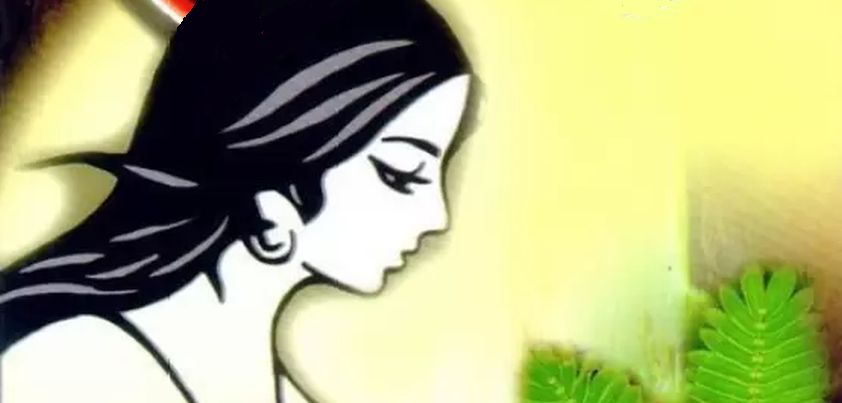 Many Mulk Raj Anand stories deal with the disadvantaged in traditional Indian society. Here a young woman from a poor rural family suffers under the custom of living with her in-laws. While her husband is temporarily living in the city, his sadistic older brother makes unwanted sexual advances. Knowing that no help will come from her mother-in-law, she runs away. When this doesn’t work, she tries to drown herself. Her thoughts when rescued: There is no way for me. I am condemned to live! Themes: women’s status in traditional Indian society, physical and sexual abuse, escape, humiliation, desperation, suicide. More…
Many Mulk Raj Anand stories deal with the disadvantaged in traditional Indian society. Here a young woman from a poor rural family suffers under the custom of living with her in-laws. While her husband is temporarily living in the city, his sadistic older brother makes unwanted sexual advances. Knowing that no help will come from her mother-in-law, she runs away. When this doesn’t work, she tries to drown herself. Her thoughts when rescued: There is no way for me. I am condemned to live! Themes: women’s status in traditional Indian society, physical and sexual abuse, escape, humiliation, desperation, suicide. More…
The Voter
 This story by Chinua Achebe uses irony to highlight vote-buying in Nigerian village elections. A sitting politician’s wealth and lifestyle have improved dramatically since being elected. To retain his place at the trough, he appoints a group of canvassers to bribe influential villagers. His most trusted canvasser faces a dilemma, He is offered an unheard-of bribe to vote for the opposition, provided he swears on a talisman that will bring ill-fortune if he doesn’t do so. He takes the money, and creatively finds a way to avoid being disloyal to either party. Themes include corruption, politics, vote-buying, superstition, loyalty. More…
This story by Chinua Achebe uses irony to highlight vote-buying in Nigerian village elections. A sitting politician’s wealth and lifestyle have improved dramatically since being elected. To retain his place at the trough, he appoints a group of canvassers to bribe influential villagers. His most trusted canvasser faces a dilemma, He is offered an unheard-of bribe to vote for the opposition, provided he swears on a talisman that will bring ill-fortune if he doesn’t do so. He takes the money, and creatively finds a way to avoid being disloyal to either party. Themes include corruption, politics, vote-buying, superstition, loyalty. More…
The Secret Life of Walter Mitty
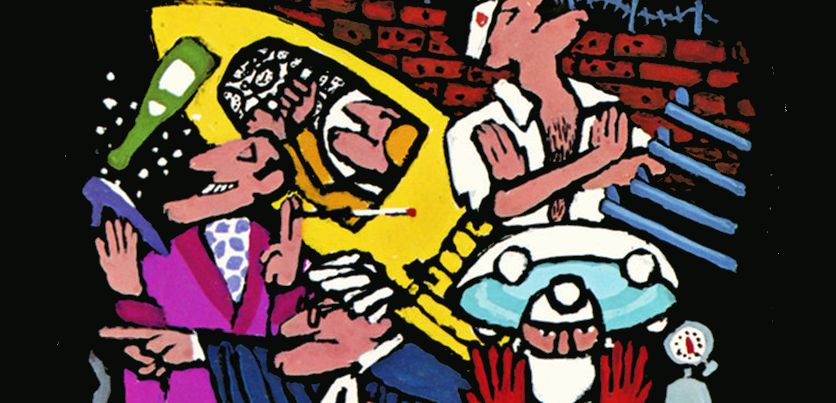 A major theme of this story by James Thurber is escapism (in this case taking charge of one’s life through fantasy). Walter Mitty, a meek, blundering man who leads a mundane suburban life is perhaps the world’s best-known daydreamer. Constantly humiliated by his dominating, nagging wife and others he encounters in the community, his way of compensating is to escape into exciting, imaginary worlds. There, he acts out fantasies in which he is the opposite of his real self, performing wondrous feats and bravely facing all kinds of danger. Other themes: identity, self-respect, masculinity, gender roles. More…
A major theme of this story by James Thurber is escapism (in this case taking charge of one’s life through fantasy). Walter Mitty, a meek, blundering man who leads a mundane suburban life is perhaps the world’s best-known daydreamer. Constantly humiliated by his dominating, nagging wife and others he encounters in the community, his way of compensating is to escape into exciting, imaginary worlds. There, he acts out fantasies in which he is the opposite of his real self, performing wondrous feats and bravely facing all kinds of danger. Other themes: identity, self-respect, masculinity, gender roles. More…
Thirst
 The major theme of this story by Ivo Andrić is man’s inhumanity to man. Set in a remote Bosnian village shortly after Austrian annexation, gendarmes capture a rebel leader with a festering chest wound. He is thrown in a cell without treatment and denied water until he names his co-conspirators. As the gendarme commander sleeps soundly, his young wife listens to the man’s screams and pleas for water throughout the night. When she finally falls asleep, her husband wakes and forces himself on her. Other themes include justice, duty, betrayal, brutality, isolation and loneliness, despair, sexuality. More…
The major theme of this story by Ivo Andrić is man’s inhumanity to man. Set in a remote Bosnian village shortly after Austrian annexation, gendarmes capture a rebel leader with a festering chest wound. He is thrown in a cell without treatment and denied water until he names his co-conspirators. As the gendarme commander sleeps soundly, his young wife listens to the man’s screams and pleas for water throughout the night. When she finally falls asleep, her husband wakes and forces himself on her. Other themes include justice, duty, betrayal, brutality, isolation and loneliness, despair, sexuality. More…
Eyes of a Blue Dog
 This story from Gabriel Garcia Márquez takes place in the narrator’s mind. While in a dream state, the man’s unconscious reflects his lack of connection in the real world by conjuring up an ongoing relationship with a woman in which each desires the other but they cannot touch. In the man’s absence, the woman wanders the city searching for him, calling out and writing Eyes of a Blue Dog, code words by which they will recognize each other. When awake, the man has no recollection of the dreams. Themes include loneliness and isolation, love and desire, frustration, longing, connection. More…
This story from Gabriel Garcia Márquez takes place in the narrator’s mind. While in a dream state, the man’s unconscious reflects his lack of connection in the real world by conjuring up an ongoing relationship with a woman in which each desires the other but they cannot touch. In the man’s absence, the woman wanders the city searching for him, calling out and writing Eyes of a Blue Dog, code words by which they will recognize each other. When awake, the man has no recollection of the dreams. Themes include loneliness and isolation, love and desire, frustration, longing, connection. More…
Where Are You Going, Where Have You Been?
 The plot of this award-winning story by Joyce Carol Oates in a nutshell: attractive, self-absorbed, rebellious teen under Why can’t you be like your big sister? pressure meets a predatory psychopath with, one imagines, predictable results. What sets the story apart is the way Oates, using dialogue alone, transforms a cautionary tale for young women into a psychological thriller that gradually develops into a horror story. Themes include search for identity, independence, sexuality and control, appearance vs. reality, malevolence, psychological manipulation and (if you believe Connie really sacrificed herself for her family), self-sacrifice. More…
The plot of this award-winning story by Joyce Carol Oates in a nutshell: attractive, self-absorbed, rebellious teen under Why can’t you be like your big sister? pressure meets a predatory psychopath with, one imagines, predictable results. What sets the story apart is the way Oates, using dialogue alone, transforms a cautionary tale for young women into a psychological thriller that gradually develops into a horror story. Themes include search for identity, independence, sexuality and control, appearance vs. reality, malevolence, psychological manipulation and (if you believe Connie really sacrificed herself for her family), self-sacrifice. More…
At the Pitt-Rivers
 In this story by Penelope Lively, a sixteen-year-old boy regularly visits the Pitt-Rivers museum to “mooch around and be on his own”. One day, he notices a woman of about thirty waiting for someone. Although ordinary looking, her face glows in a way that makes him feel good. His views on “correctness” in relationships are challenged when she greets a man in his fifties she obviously loves. The couple meet frequently at the museum. He watches as their relationship grows and, one day, crumbles. Her glow fades to a look of despair. Themes include beauty, teen dating, non-traditional love, disillusionment. More…
In this story by Penelope Lively, a sixteen-year-old boy regularly visits the Pitt-Rivers museum to “mooch around and be on his own”. One day, he notices a woman of about thirty waiting for someone. Although ordinary looking, her face glows in a way that makes him feel good. His views on “correctness” in relationships are challenged when she greets a man in his fifties she obviously loves. The couple meet frequently at the museum. He watches as their relationship grows and, one day, crumbles. Her glow fades to a look of despair. Themes include beauty, teen dating, non-traditional love, disillusionment. More…
Here We Aren’t, So Quickly
 Many readers find this Jonathan Foer story confusing because of its unconventional style. It comprises a series of short, seemingly random recollections and observations about a couple’s past, often in the form of negative declarations. On the first read, the differences between the two people appear so vast that it is hard to see how they could remain happy together. Themes include the swift passing of time, personality growth as we age, understanding and accepting differences, and the development of a relationship from individuals (”I” and “You”) to a couple (“We”) and then a family (“We” and “He”). More…
Many readers find this Jonathan Foer story confusing because of its unconventional style. It comprises a series of short, seemingly random recollections and observations about a couple’s past, often in the form of negative declarations. On the first read, the differences between the two people appear so vast that it is hard to see how they could remain happy together. Themes include the swift passing of time, personality growth as we age, understanding and accepting differences, and the development of a relationship from individuals (”I” and “You”) to a couple (“We”) and then a family (“We” and “He”). More…
The Veldt
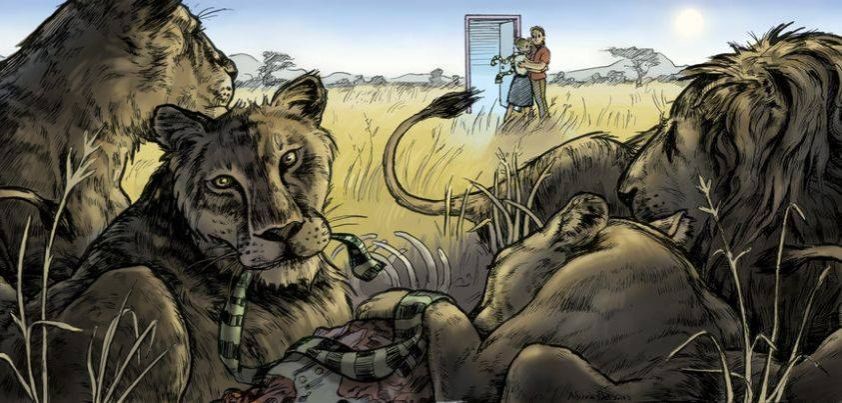 In this chilling story by Ray Bradbury, frantic parents who try to rein in their spoiled children by shutting down the hi-tech games room in their “HappyLife” home become a “HappyMeal”. Although written in 1950 to question the rising influence of television, the story serves as a warning to modern parents who let their children build their lives around social networking and/or game play. The story’s major theme is the alienation, dehumanization and breakdown of family values that can arise in a household through over-reliance on technology. Other themes include consumerism, poor parenting, illusion vs. reality, dystopia. More…
In this chilling story by Ray Bradbury, frantic parents who try to rein in their spoiled children by shutting down the hi-tech games room in their “HappyLife” home become a “HappyMeal”. Although written in 1950 to question the rising influence of television, the story serves as a warning to modern parents who let their children build their lives around social networking and/or game play. The story’s major theme is the alienation, dehumanization and breakdown of family values that can arise in a household through over-reliance on technology. Other themes include consumerism, poor parenting, illusion vs. reality, dystopia. More…
Black Boy
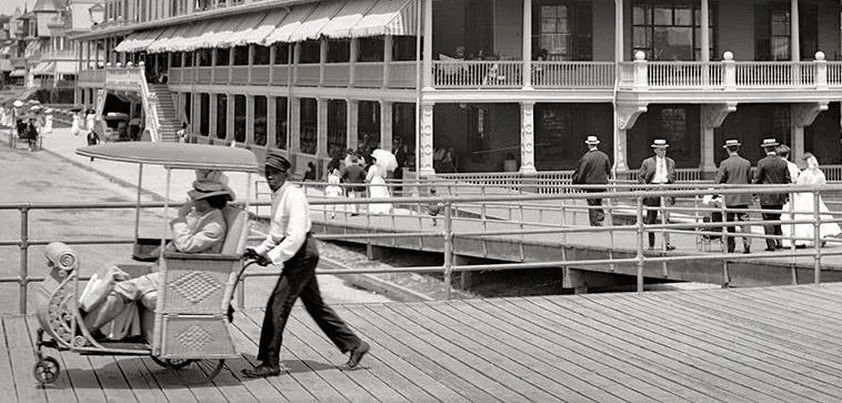 In this story by Kay Boyle, a ten- twelve-year-old girl living with her grandfather in a seaside city befriends an African-American “boy” who pushes rolling chairs by day and appears to sleep under the boardwalk at night. When the girl’s grandfather discovers them talking, he warns her off spending time with the boy because he might do you some kind of harm. The girl’s hobby is horse riding along the sand. When the boy helps her home after a fall, he doesn’t get the thanks he deserves. Themes: childhood innocence, friendship, prejudice and racism, dreams and imagination. More…
In this story by Kay Boyle, a ten- twelve-year-old girl living with her grandfather in a seaside city befriends an African-American “boy” who pushes rolling chairs by day and appears to sleep under the boardwalk at night. When the girl’s grandfather discovers them talking, he warns her off spending time with the boy because he might do you some kind of harm. The girl’s hobby is horse riding along the sand. When the boy helps her home after a fall, he doesn’t get the thanks he deserves. Themes: childhood innocence, friendship, prejudice and racism, dreams and imagination. More…
The Story of a Letter
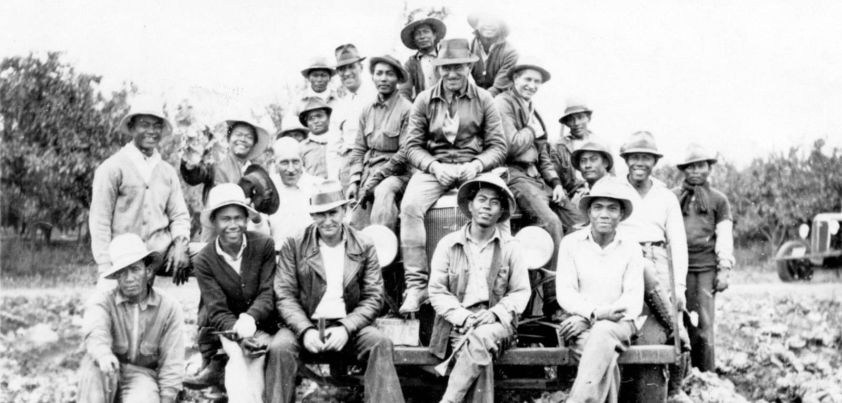 In this semi-autobiographical story by Carlos Bulosan, a letter written in English in need of translation links two themes: 1) The challenges (language barriers, racism, exploitation and mistreatment) faced by illiterate Filipinos who immigrated to America for a better life during the first half of last Century; 2) The harshness and unpredictability, especially for those on the land, of the life they left behind. Sadly, most of their families at home will rarely, if ever, hear from them again. Other themes include family, community, the importance of education, expectations vs. reality, resilience, perseverance. More…
In this semi-autobiographical story by Carlos Bulosan, a letter written in English in need of translation links two themes: 1) The challenges (language barriers, racism, exploitation and mistreatment) faced by illiterate Filipinos who immigrated to America for a better life during the first half of last Century; 2) The harshness and unpredictability, especially for those on the land, of the life they left behind. Sadly, most of their families at home will rarely, if ever, hear from them again. Other themes include family, community, the importance of education, expectations vs. reality, resilience, perseverance. More…
The King is Dead, Long Live the King!
 This story from Mary Coleridge includes some excellent examples of situational irony. A king dies of fever, regretting that he had not lived long enough to finish his work. His spirit dreams his life will be restored if it can locate three people who wish that he was still alive within an hour of his death. The spirit’s findings are not what it had expected, and an even greater insult awaits when it returns to the palace. The story encourages readers to think about what kind of person they think they are, and whether their friends or partner would agree. More…
This story from Mary Coleridge includes some excellent examples of situational irony. A king dies of fever, regretting that he had not lived long enough to finish his work. His spirit dreams his life will be restored if it can locate three people who wish that he was still alive within an hour of his death. The spirit’s findings are not what it had expected, and an even greater insult awaits when it returns to the palace. The story encourages readers to think about what kind of person they think they are, and whether their friends or partner would agree. More…
Victory Over Japan
 Today we are featuring the trilogy of “Rhoda” stories from Ellen Gilchrist’s short story collection Victory Over Japan. In the titular first story, set in the final days of World War 2, Rhoda is a willful third-grader living in fear of when her disciplinarian father returns home from the war. In the second story, Music, she is a rebellious fourteen-year-old, obsessed with beauty and romance and constantly at war with her father. In the final story, The Lower Garden District Free Gravity Mule Blight or Rhoda, a Fable, she is a lost thirty-four-year-old at a crossroads. More…
Today we are featuring the trilogy of “Rhoda” stories from Ellen Gilchrist’s short story collection Victory Over Japan. In the titular first story, set in the final days of World War 2, Rhoda is a willful third-grader living in fear of when her disciplinarian father returns home from the war. In the second story, Music, she is a rebellious fourteen-year-old, obsessed with beauty and romance and constantly at war with her father. In the final story, The Lower Garden District Free Gravity Mule Blight or Rhoda, a Fable, she is a lost thirty-four-year-old at a crossroads. More…
The Man Who Could Work Miracles (A Pantoum in Prose)
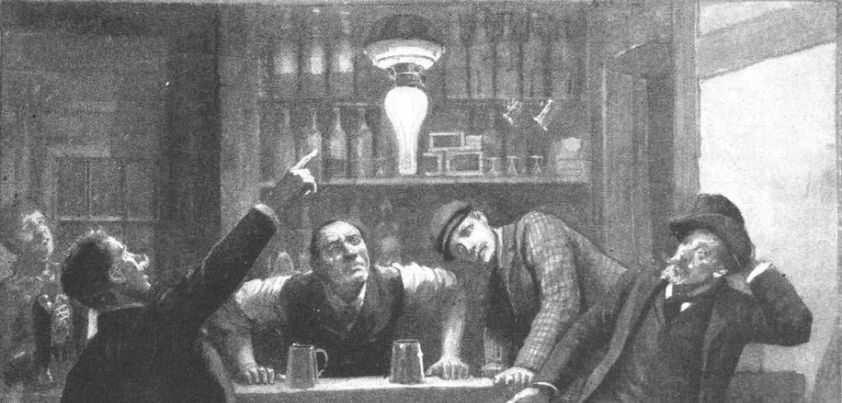 In this light-hearted story by H. G. Wells, a man known as a sceptic as far as miracles are concerned suddenly discovers he can make things happen just by thinking about them. After a few teething problems, such as sending a local police constable to Hades, he confides in his parish priest. Once convinced, the priest becomes so obsessed with using the miracle worker’s powers for good that he inadvertently encourages him to do something that brings about global catastrophe. Themes include the supernatural, power and responsibility, human frailty, the danger of interfering with nature, science vs. religion. More…
In this light-hearted story by H. G. Wells, a man known as a sceptic as far as miracles are concerned suddenly discovers he can make things happen just by thinking about them. After a few teething problems, such as sending a local police constable to Hades, he confides in his parish priest. Once convinced, the priest becomes so obsessed with using the miracle worker’s powers for good that he inadvertently encourages him to do something that brings about global catastrophe. Themes include the supernatural, power and responsibility, human frailty, the danger of interfering with nature, science vs. religion. More…
In a Grove
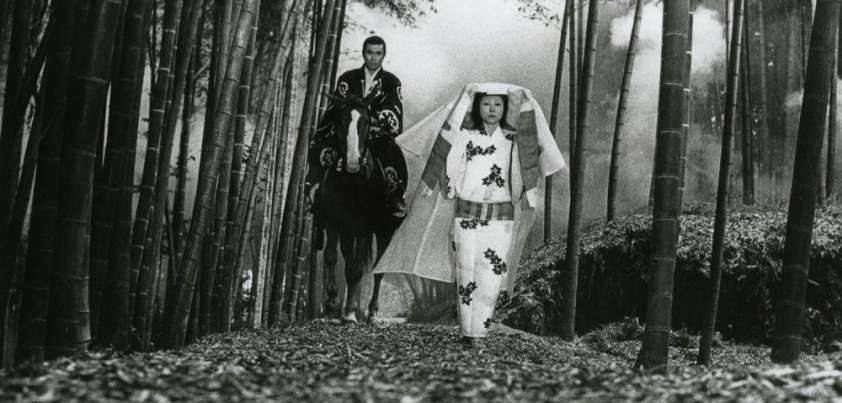 Ryūnosuke Akutagawa‘s In a Grove, published in 1922, is based on a classical Japanese tale first documented in the 12th century. It comprises seven accounts, including three confessions, relating to the death of a young Samurai. There are differences between each account, and none of the confessions are totally convincing. The story shares similarities with Ambrose Bierce’s Moonlit Road, published fifteen years earlier. Both stories feature unreliable narrators (including the spirit of the victim speaking through a medium) and leave readers to draw their own conclusions about the crime and identity of the killer. Who do you think did it? More…
Ryūnosuke Akutagawa‘s In a Grove, published in 1922, is based on a classical Japanese tale first documented in the 12th century. It comprises seven accounts, including three confessions, relating to the death of a young Samurai. There are differences between each account, and none of the confessions are totally convincing. The story shares similarities with Ambrose Bierce’s Moonlit Road, published fifteen years earlier. Both stories feature unreliable narrators (including the spirit of the victim speaking through a medium) and leave readers to draw their own conclusions about the crime and identity of the killer. Who do you think did it? More…
Mammon and the Archer
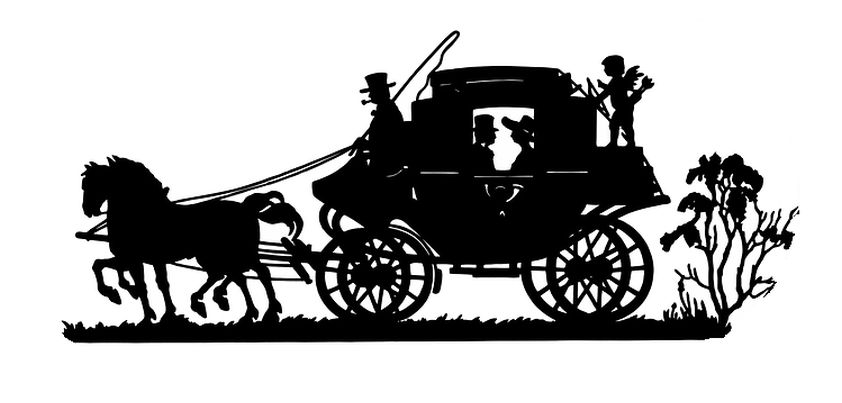 Mammon is a biblical term for great wealth. In this story by O. Henry, a self-made millionaire is initially of the belief that money can buy anything. When his son falls in love with a woman from an aristocratic family, he learns there are two things his money can’t buy: love and family recognition among New York High Society. Fortunately for his son, it is able to buy the young man enough time to allow the archer to do his job. Themes include money vs. love, pride, new vs. old money, upper class etiquette, superstition, deception. More…
Mammon is a biblical term for great wealth. In this story by O. Henry, a self-made millionaire is initially of the belief that money can buy anything. When his son falls in love with a woman from an aristocratic family, he learns there are two things his money can’t buy: love and family recognition among New York High Society. Fortunately for his son, it is able to buy the young man enough time to allow the archer to do his job. Themes include money vs. love, pride, new vs. old money, upper class etiquette, superstition, deception. More…
Charles
 Most readers see Laurie, the subject of this Shirley Jackson story, as a naughty boy who tries to gain attention in kindergarten by misbehaving. He creates an alter ego named Charles to tell his parents what happens at school and later, to explain getting home late. However, there is an equally possible alternative interpretation. Laurie may have behaved quite normally at school and created an imaginary naughty classmate to gain attention at the dinner table. Both are consistent with the teacher’s vague assessment of Laurie. Either way, themes include behavior, identity, the desire for attention, deception, ambiguity. More…
Most readers see Laurie, the subject of this Shirley Jackson story, as a naughty boy who tries to gain attention in kindergarten by misbehaving. He creates an alter ego named Charles to tell his parents what happens at school and later, to explain getting home late. However, there is an equally possible alternative interpretation. Laurie may have behaved quite normally at school and created an imaginary naughty classmate to gain attention at the dinner table. Both are consistent with the teacher’s vague assessment of Laurie. Either way, themes include behavior, identity, the desire for attention, deception, ambiguity. More…
The Bog Man
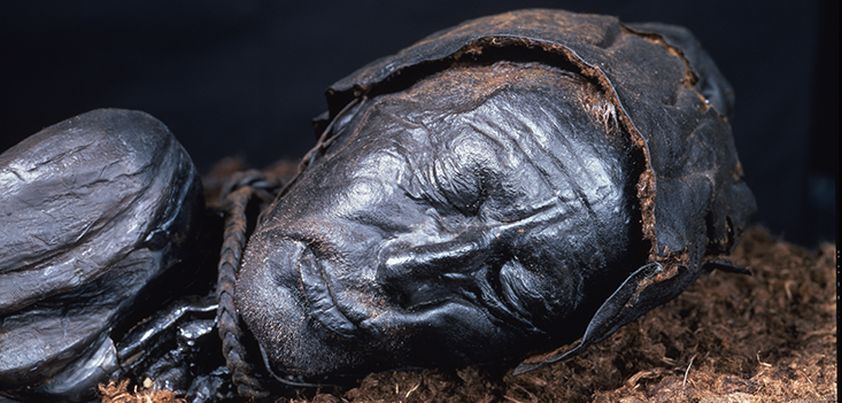 As in an earlier Margaret Atwood story, The Age of Lead, The Bog Man revolves around a long-dead body. A university student’s hero worship of her archaeology professor leads to a torrid affair during which she accompanies him as his ‘assistant’ to inspect a 2,000-year-old body preserved in a Scottish peat bog. As his invisible wife comes between them, she feels “cheap and furtive”. Recognizing his shallowness, she ends the relationship. Like the bog man, over the years he becomes flatter and more leathery, as life goes out of him in her mind. Themes include infatuation, sexual exploitation, desire, guilt, empowerment. More…
As in an earlier Margaret Atwood story, The Age of Lead, The Bog Man revolves around a long-dead body. A university student’s hero worship of her archaeology professor leads to a torrid affair during which she accompanies him as his ‘assistant’ to inspect a 2,000-year-old body preserved in a Scottish peat bog. As his invisible wife comes between them, she feels “cheap and furtive”. Recognizing his shallowness, she ends the relationship. Like the bog man, over the years he becomes flatter and more leathery, as life goes out of him in her mind. Themes include infatuation, sexual exploitation, desire, guilt, empowerment. More…